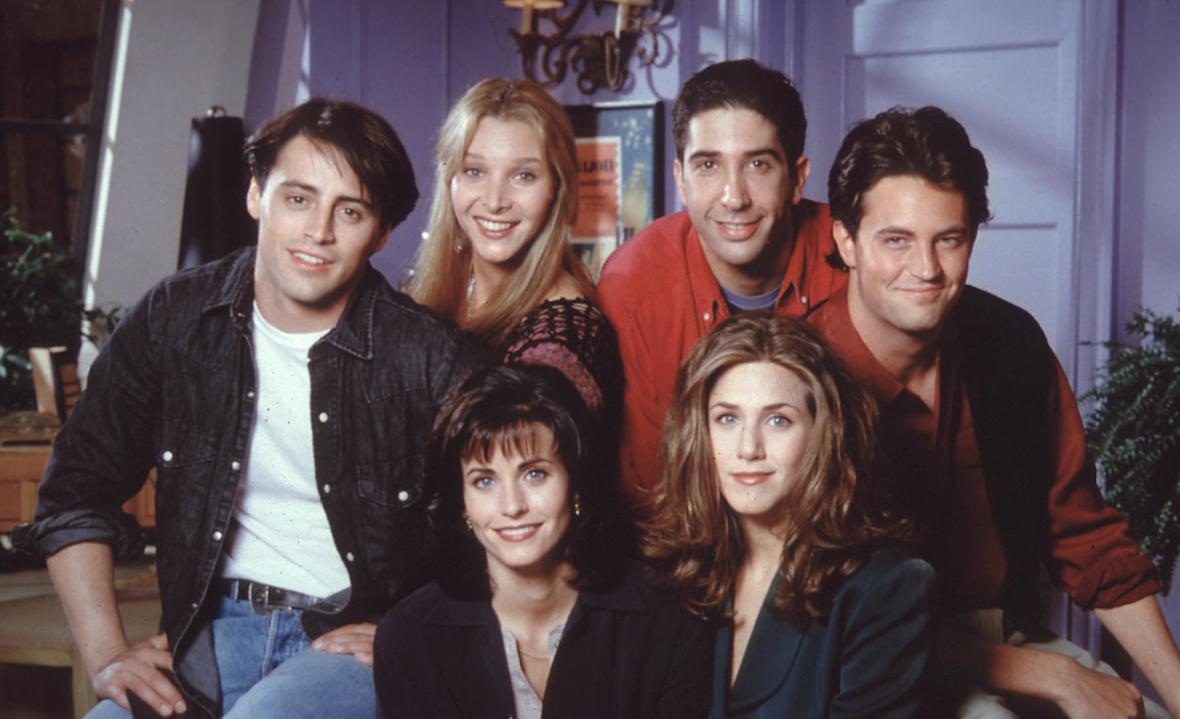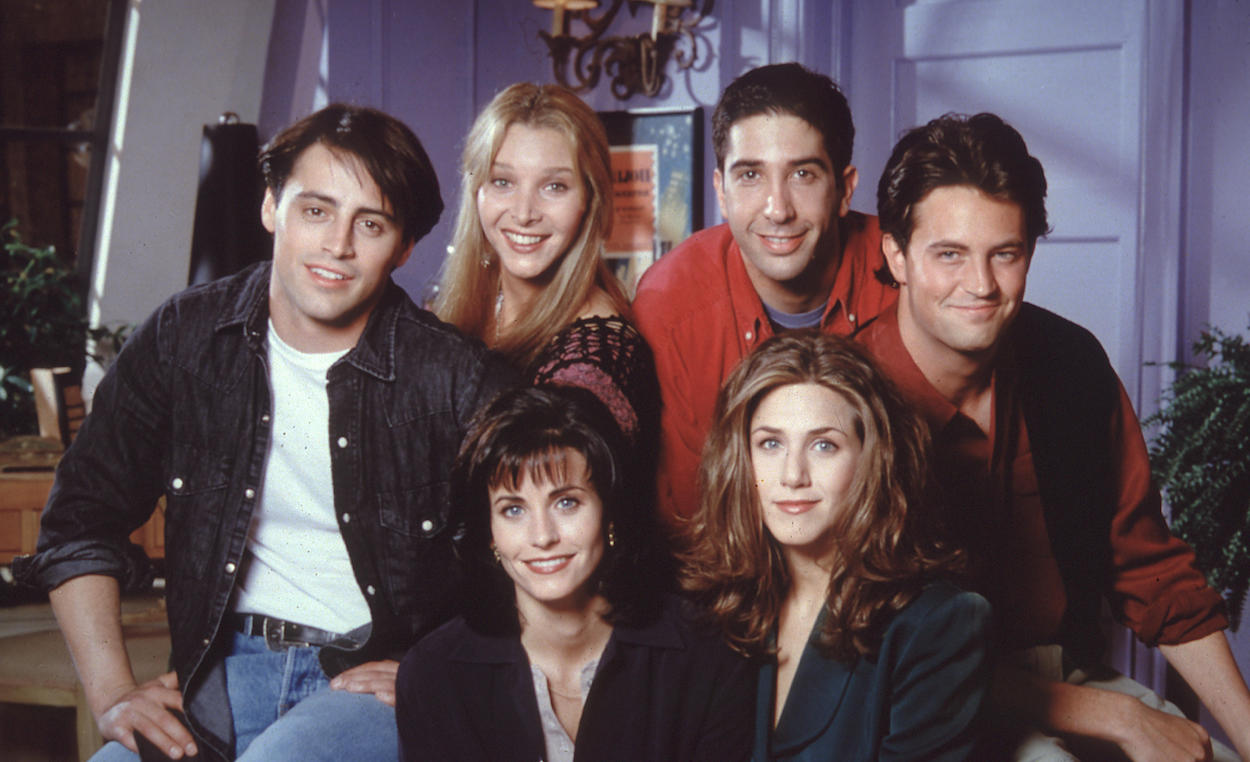This weekend became The One Where We All Lost A Friend: Matthew Perry, Friends actor, addiction spokesperson and rehabilitation advocate, who died aged 54. He played the sweetly acerbic, chronically insecure Chandler Bing. Perry’s comic genius and impeccable timing meant he created a particular style of delivery and physicality that was uniquely his but endlessly imitable, epitomised by the smart-alec cadence of his immortal catchphrase, ‘Could I be any more…’
Friends, like everything, is a product of its time and should be contextualised as such
Yet among the grief and love is an insidious need to caveat how supposedly ‘problematic’ Friends is: that before you acknowledge Perry’s death as a ‘tragedy’, you have to throw in a disclaimer that it has ‘aged horribly’ or that some of the jokes are ‘dated’. When the show re-aired on Netflix in 2017 and gained a much younger audience, there were plenty of accusations that Friends was too white, too homophobic, too transphobic, too fatphobic, too crammed with outdated cultural politics, as if the first episode aired 30 days ago and not 30 years. Clicktivists and TikTokers compiled out-of-context clips to show how ‘offensive’ the show was and because many of these ‘triggering’ moments involved Chandler (who, the writers have said, was in no way homophobic), this apparently means we need to somehow re-evaluate our grief.
It is nonsense. Firstly, in many ways, the show is not problematic but progressive, perhaps even groundbreaking. It featured a variety of non-nuclear families: a surrogate, a single mother, an infertile couple who adopt twins, a lesbian couple who get married (which was not actually legalised in New York until 15 years later) and bring up a child, and a trans father who reconnects with their son and gets invited to his wedding. It had strong female characters: Rachel abandoned her future as a trophy wife and carved out a career in the fashion industry as a working mother; Monica, the most headstrong of the group, is the head chef of a restaurant; and Phoebe never conforms to the norm, even when she marries Mike. It also portrayed male friends saying ‘I love you’ to each other and confronting their own issues around toxic masculinity, such as when Ross admits that his discomfort around the idea of a male nanny stems from his father berating him for being too sensitive and not playing ‘outside like a real boy’. It dealt with topics such as sexual promiscuity, suicide, divorce, interracial relationships, boys wanting to play with Barbies, and Rachel even has her own #MeToo moment.
Of course, there are some storylines and stereotypes that would have to be rewritten nowadays. The show is undeniably fatphobic – Young Monica and her fatsuit are a comic punching bag throughout the series – but then the nineties and early noughties were fatphobic. This was a time when tabloids called size-12 Jessica Simpson ‘ballooning’ ‘Jumbo Jessica’ and the Titanic director called Kate Winslet ‘Kate Weighs-a-Lot’. This was a time when Kelloggs tried to have us eat 30g servings of Special K instead of actual meals and Victoria Beckham was forced to weigh herself live on TV two months after giving birth. This was a time of heroin chic, skinny worship, when Diet Coke was a health drink and Bridget Jones’ nine stone weight was the very first thing she wrote in her diary. If anything, it’s amazing that the show’s fatphobia isn’t actually worse. It’s a bittersweet reminder of how far we have come.
Friends, like everything, is a product of its time and should be contextualised as such. This compulsion to retrospectively dissect and criticise everything – even the most phenomenally, globally successful and loved television series – is a form of historical revisionism that forgets that all art is a time capsule that is to be explored, not edited. Other shows have fallen foul of this obsessive presentism, the need to judge past actions by today’s standards. For example, Comedy Central no longer run the US version of The Office’s controversial episode ‘Diversity Day’, which satirises contemporary corporate inclusion policies in the most uncomfortable and cringeworthy of ways.
The same thing must not be allowed to happen to Friends: not because of what has changed, but what has stayed the same. Friends resonates with younger audiences as well as older ones because of its warmth, the actors’ inimitable chemistry, and the characters’ generosity of spirit. The storylines are comfortable and relatable and tap into our fundamental desire for human connection and fun. It is well-intentioned and innocuous and just because it does not always meet modern standards of political correctness, does not make it any less culturally important or render Matthew Perry’s death any less tragic. Society’s value judgements will come and go, but funny is forever.







Comments